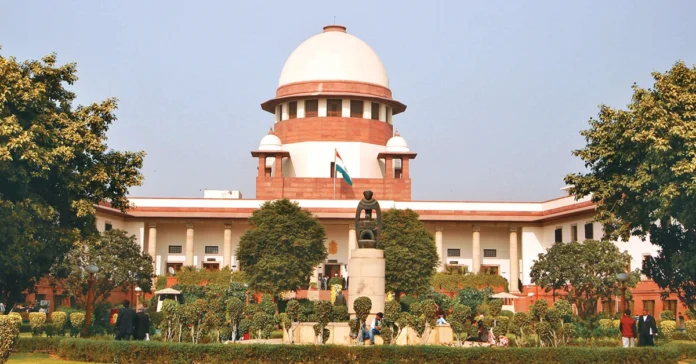The wife of noted Ladakhi innovator and climate activist Sonam Wangchuk has moved the Supreme Court against his preventive detention under the National Security Act, 1980. The petition, filed by Gitanjali J. Angmo through advocate Sarvam Ritam Khare on October 2, contends that the detention is unconstitutional and amounts to a violation of her husband’s fundamental rights guaranteed under the Indian Constitution.
She has urged the Court to strike down the detention order and order his immediate release, arguing that Wangchuk’s arrest is arbitrary, excessive, and clearly intended to suppress peaceful dissent.
Wangchuk, who is internationally recognized for his work in sustainable innovation and education, was taken into custody on September 26 by the Ladakh administration. Following his arrest, he was transferred to Jodhpur Central Jail in Rajasthan. Authorities invoked the NSA citing apprehensions that his activities could lead to a breach of public peace.
His detention, however, came at a time when protests in Ladakh were intensifying, with activists and local organizations pressing for full statehood and constitutional safeguards under the Sixth Schedule to protect the region’s fragile ecology, unique tribal identity, and cultural heritage. Wangchuk has been one of the leading voices behind these movements, organizing fasts, awareness programs, and other peaceful demonstrations to highlight the concerns of Ladakhis.
In her plea, Angmo has stressed that preventive detention laws were never meant to be applied against individuals engaged in democratic activism. She argues that Wangchuk has always stood for non-violence, never engaged in hate speech or incitement, and has consistently worked for the betterment of his community and the environment.
By using a draconian provision such as the NSA against someone like him, the administration, according to her, has acted in bad faith and in violation of constitutional principles. The petition also raises a larger question about the misuse of preventive detention laws in a democracy, pointing out that such measures should be reserved for situations involving genuine threats to national security and not deployed to silence critics of government policy.
The case is expected to be heard after the Dussehra vacation of the Supreme Court, though a date for listing has not yet been finalized. Until then, Wangchuk continues to remain behind bars in Jodhpur. His arrest has already sparked criticism from civil society groups, academics, and activists across India and abroad. Many have described his detention as an attempt to intimidate those who have been demanding greater autonomy and safeguards for Ladakh. Given his reputation as a reformer and environmentalist, as well as the inspiration he has provided to youth both in India and globally, the case is likely to attract widespread public attention once it comes up for hearing.


